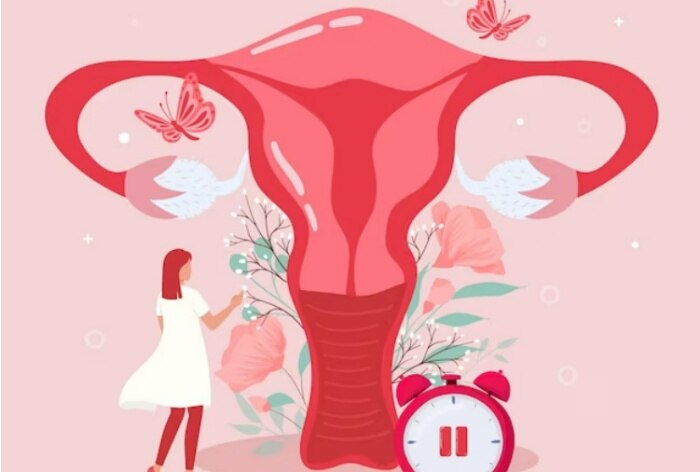One year without periods is considered menopause in the absence of any other medical conditions that affect your period.

Perimenopause Symptoms: The period before menopause is known as perimenopause. When a person’s periods are more than 60 days apart, medical professionals consider them to be in the latter phases of perimenopause. Variations in menstrual flow and cycle length are characteristics of the ‘early stage of perimenopause’. Contrarily, the final phase of perimenopause, which occurs just before menopause sets in, is marked by missing periods until it ultimately ends.
During perimenopause, estrogen levels change dramatically, which has a negative effect on the brain’s levels of serotonin and norepinephrine. However, there is no guaranteed method to determine that perimenopause is ending until a person stops having periods. The symptoms of perimenopause may differ from person to person.
5 SIGNS OF EARLY MENOPAUSE YOU DIDN’T KNOW
- Irregular Periods: Your periods might be heavier or lighter, more or less frequent, or last longer or shorter than normal. This is a well-known sign that menopause is on the horizon.
- Hormonal Changes: Your mood may be affected by a number of things, including menopause-related hormonal changes. If you’ve previously experienced anxiety or melancholy, menopause may make those feelings worse.
- Hot Flashes: Hot flashes, which cause abrupt feelings of warmth or flushing without any apparent cause, are one of the most well-known menopausal symptoms. Although some people are more susceptible to them than others, it is believed that changes in estrogen production are the source of them.
- Vaginal Dryness: You may begin to suffer vaginal dryness during perimenopause, which can make intercourse unpleasant or even painful. Additionally, your chances of having severe vaginal dryness are increased if you were diagnosed with breast cancer.
- Weight Gain: Additionally, your skin and hair may become drier and thinner. Some people experience weight gain during menopause. Your body composition may also change, resulting in less muscle and more fat overall, as well as more fat around the waist.
Menopause is a normal stage of life, therefore if you are in the typical menopausal age range and have just moderate symptoms, you probably don’t need to consult a doctor. However, it’s time to get assistance if your menopausal or perimenopause symptoms are affecting your quality of life.
In the absence of any other medical conditions that affect your period, one year without periods is considered menopause. Due to the decrease of ovarian function in your 40s and 50s, you are said to be in your menopausal period if you spend 12 months without having a monthly cycle.
